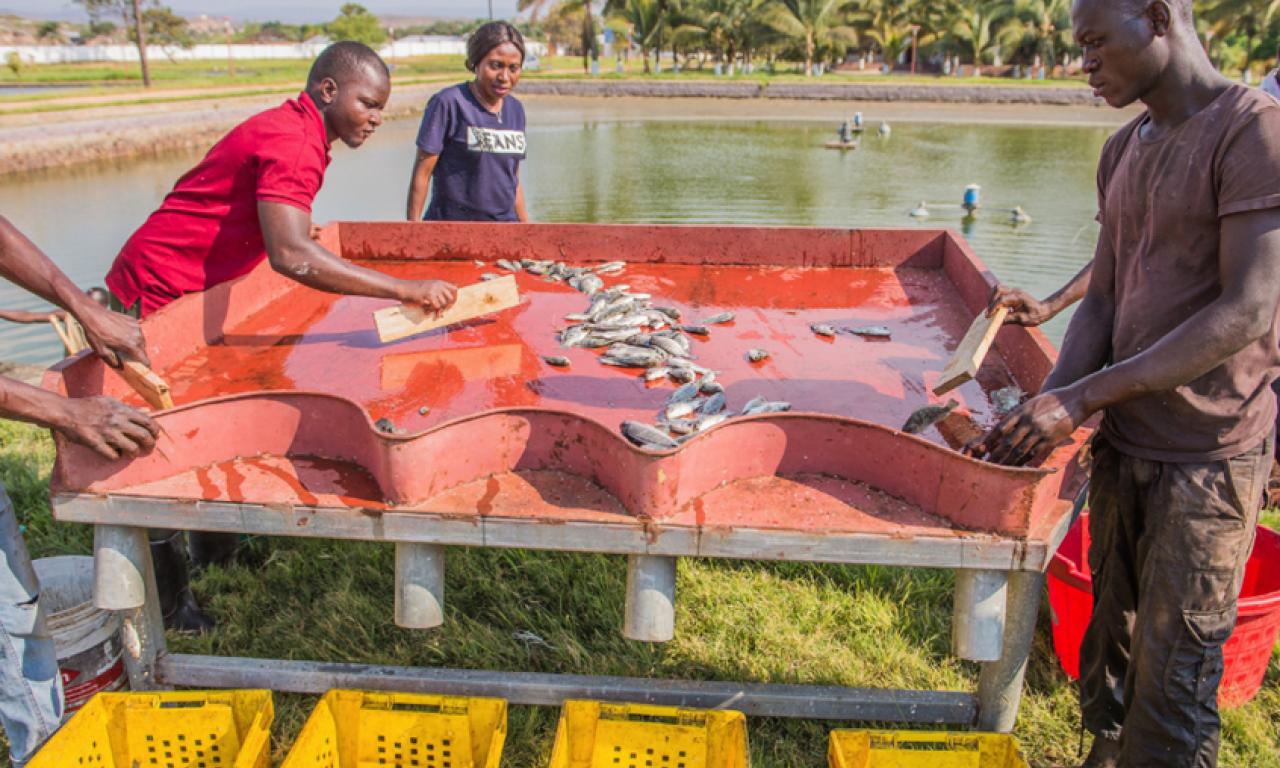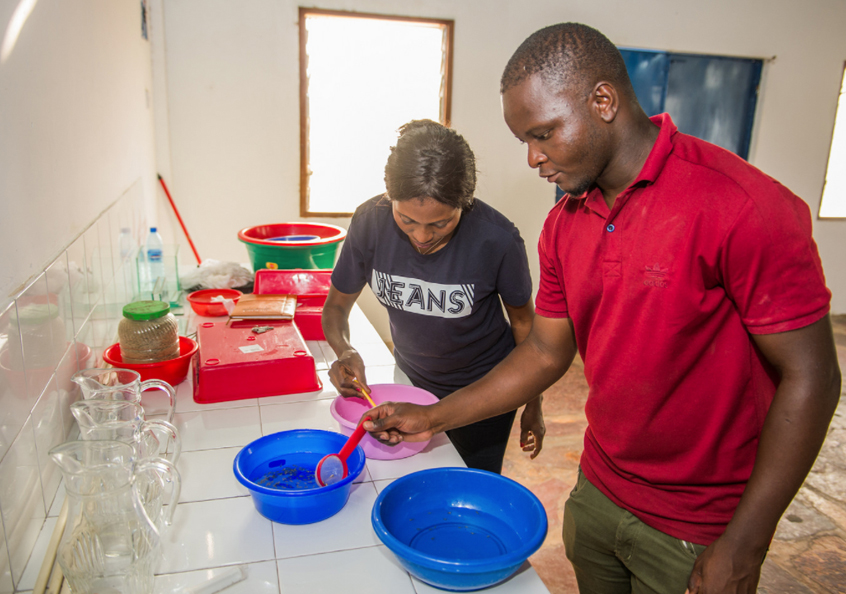
After a month of intensive, hands-on practical learning, 16 students from across southern Africa completed the first Aquaculture Vocational Mentorship Course, held at the Lake Harvest company in Zimbabwe.
Recommended publications
- Servicing the aquaculture sector: The role of state and private actors
- Aquaculture in Zambia: An overview and evaluation of the sector’s responsiveness to the needs of the poor
- Toward more inclusive and sustainable development of Zambian aquaculture
After a month of intensive, hands-on practical learning, 16 students from across Southern Africa completed the first Aquaculture Vocational Mentorship Course, held at the Lake Harvest company in Zimbabwe.
Located on Lake Kariba, Lake Harvest is the largest aquaculture farm in Zimbabwe and one of the largest in the Southern African Development Community (SADC). The participating students were drawn from Zimbabwe, Tanzania, Zambia, Malawi, Namibia and Lesotho.
Run by WorldFish, in collaboration with Chinhoyi University of Technology and Lake Harvest, the vocational course aims to promote aquaculture development in Africa by improving the practical application of university education, ensuring that graduates have sufficient practical experience to work on or run a fish farm after graduation.
The mentorship course falls under the Phakisa Partnership. Operation Phakisa is an initiative of the South African government, which was designed to fast track the implementation of solutions to critical development issues including fisheries management.
The course objectives and learning outcomes were designed in such a way that, at the end of the month, the students were expected to have
- increased basic understanding and appreciation of aquaculture practices,
fish rearing and management; - gained hands-on, practical experience in freshwater aquaculture and fish
farming through placement at fish farms on Lake Kariba; - appreciated the intricacies and complexities of executing successful fish
farming projects/programs; - implemented the knowledge acquired to help support aquaculture
development in Africa by growing the aquaculture industry in their
respective countries.
Further, in partnering with Chinhoyi University and other higher education institutions, WorldFish is effectively augmenting the skills of new graduates to develop science-based models that can help in aquaculture research and development in the SADC. Across the region, WorldFish is working with several universities to help align their aquaculture research and teaching with the SADC Regional Aquaculture Strategy and Action Plan (2016-2026)

Aquaculture development in Africa targets staff capacity and farm management
Increasing knowledge and aquaculture development in Africa is also the objective of WorldFish’s partnership with Great Lake Products (GLP) in Zambia's Mpulungu district. GLP has been operating along Lake Tanganyika since the early 2000s. It has a total fish farming area of 4.96 hectares, and its production in 2016 was 886 kg/ha. However, over the years, the company has experienced a number of challenges, including poor brood stock management, inbreeding and crossbreeding, a poor diet and feeding regime, and a lack of qualified employees.
To alleviate some of these challenges, WorldFish, with funding from Irish Aid, is working with GLP on brood stock replacement and genetic improvement, setting up a hatchery for enhanced fingerling production, formulating cost-effective, high-quality feeds, building staff capacity and improving farming and management systems.
Thanks to this support, GLP has so far produced 251,235 quality fingerlings, which are available for own use, fish production and sale to local fish farmers.
The impact of this model on small-scale fish farmers is starting to be felt. Not only do they have ready access to quality fish seed for the first time, they do not need to travel—as was previously the case—to buy fingerlings from a government-run production center hundreds of kilometers away, with clear efficiency and resource benefits.